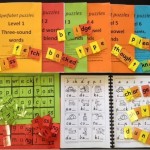Usually before e, i or y
| One-syllable | -age ending | Two-syllable | Longer words | Rarely before other vowels |
| age cage gel gem gents gist gym huge page rage sage stage wage | advantage average baggage bandage beverage blockage bondage breakage cabbage carnage carriage cartilage coinage cottage courage coverage damage digest disadvantage discourage disparage dosage drainage encourage envisage foliage footage forage frontage garbage gerbil heritage homage image language leakage leverage linkage luggage manage marriage message mileage orphanage package parentage passage patronage peerage percentage pilgrimage pillage plumage postage rampage ravage rummage salvage sausage savage sewage shortage shrinkage silage slippage spillage stoppage storage suffrage tonnage tutelage usage vantage vicarage village vintage voltage voyage wastage wreckage | agent agile angel clergy danger digit edgy Egypt elegy engine fragile gentle germ German gerund gesture giant ginger ginseng gyrate ingest legend logic magic margin merger sludgy stingy tragic urgent | allergic allergy analogy anthology apology astrological biologist biology cardiologist climatology cosmologist ecologist ecology eligible emergency energy engineer entomologist etiological etymologist fugitive genesis gelati generate genius geological geologist geology gymnasium gymnastics gyroscope ideology illegible imagination legislature lethargy liturgy metallurgy musicologist mythological mythology neurological origin original ornithologist oxygen paraplegic pathological prodigy quadriplegic radiology refugee strategic surgical synergy tautology technological trilogy Vegemite vigilant | gaol margarine veg |



Hi Alison sorry to bug you! I have a question about words like religion, region, legion – how would you suggest teaching these?
After I have taught the main spellings for all the vowel sounds, I usually go through the consonants and unless they only have one or two main spellings, teach variations for each one. In this instance the sound is /j/ as in jump, and I’d ask the student(s) to tell me lots of words containing this sound, and write them out and get them to sort the into groups. I’d make sure that a few words like region and religion are in the mix, and these would form a “gi” group, I have a list of the words I know like this here: https://www.spelfabet.com.au/spelling-lists/sorted-by-sound/j/gi-as-in-region. If you want to prepare this sorting activity ahead of time you can select words from each of the lists here: http://www.spelfabet.com.au/spelling-lists/sorted-by-sound/j/, write the words on cards or slips of paper and hand them out, and then as students find new spellings they can add new headings.
We generally pronounce the letter G as “j” when it is followed by E, I or Y, so in these words the letter “I” helps clarify this pronunciation. If “region” had no letter “I” we would be inclined to pronounce it rhymed with “vegan”. Similarly, we use the spelling GU in quite a few words to clarify that the pronunciation is /g/ not /j/ e.g. guitar, guess, disguise. Hope that all makes sense. All the best, Alison
What a about gelato?
Is there a rule (pattern?) that says the letter g in a split digraph softens to a /j/? My year 2’s asked this after they noticed the split digraph when encoding stage, page and huge in one of our phonics lessons this week.
The letter G is usually pronounced /j/ before front-of-mouth vowels, which are written with letters E, I or Y, as in ‘gel’, ‘gist’ and ‘gym’, but it usually represents /g/ before back-of-mouth vowels, which are written A, O and U, as in ‘gas’, ‘got’ and ‘gut’. This is similar to the pattern for C representing /s/, as in ‘cell’, ‘city’, ‘cyan’, but it’s /k/ in ‘cat’, ‘cop’, ‘cut’, though G is much less consistent than C (think ‘get’, ‘girl’, ‘muggy’). If you really want to impress your Year 2s you can explain the historical reasons for this, there’s a great podcast about the letter C here: https://historyofenglishpodcast.com/2012/07/17/episode-5-centum-satem-and-the-letter-c-2/. C and G are closely related etymologically, I can’t remember whether letter G gets a mention in this particular episode of the podcast.
Hi Alison
Can you help explain why danger has the hard A
I understand the soft G
I’m obsessing over this!
Hi Kim, I’m not sure I understand the question, what is ‘the hard A’? Maybe you mean why does ‘danger’ rhyme with ‘ranger’ not ‘hanger’? My guess would be because ‘danger’ and ‘ranger’ have their roots in Latin/French while ‘hang’ comes from Anglo-Saxon/Germanic, and ‘hanger’ is a suffixed form of it. Words with the same final spelling patterns don’t have to rhyme/include the same vowel pronunciation in English, think of ‘poster’ and ‘roster’ and ‘shall’ and ‘small’ and ‘child’ and ‘build’. English is a mashup of multiple languages so it’s kinda messy, but also a highly efficient way of representing sounds and meaning in print. Hope that makes sense, Alison